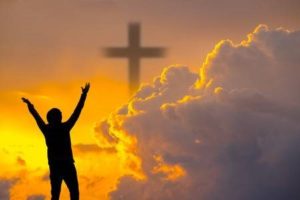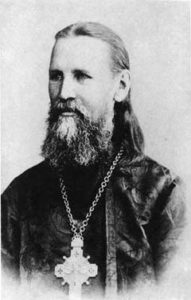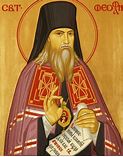SSCORRE!
Saint Sophia Cathedral
Online Resources for our Religious Edification

Topic of the Week:
“…man is a wayfarer who is wending his way in the sway of time and mortality towards immortality and eternity.” Saint Justin PopovichAdult/Family:“The ever-living personality of God-human Christ is precisely the Church. The Church is always personality, God-human body and spirit. The definition of the Church, Her life, Her purpose, Her spirit, Her plan, Her ways, all these are given in the wondrous Person of God-human Christ.
Hence, the mission of the Church is to make every one of her faithful, organically and in person, one with the Person of Christ; to turn their sense of self into a sense of Christ, and their self-knowledge (self-awareness) into Christ-knowledge (Christ-awareness); for their life to become the life in Christ and for Christ; their personality to become personality in Christ and for Christ; that within them might live not they themselves but Christ in them (Gal. 2:10).
The mission of the Church is still to bring about in her members the conviction that the proper state of human personhood is composed of immortality and eternity and not of the realm of time and mortality…and the conviction that man is a wayfarer who is wending his way in the sway of time and mortality towards immortality and all eternity.”
from “The Inward Mission of Our Church” by St. Justin Popovich
Preschool/Elementary School:
“Go outside to a field. Ask yourself: “To whom does this field belong?” And you will reply to yourself: “It belongs to me” or “It belongs to so-and so.” Then ask yourself: “To whom has this field belonged in the past?” If you know the history of that field, a list of names will appear in your mind. Then you will realize how little ownership means.
That field has seen countless generations of people claiming ownership of it. Countless generations of feet have trod on it, have plower its soil, and have sown and harvested grain. If the field were sentient, do you think it would feel owned by the person who claims ownership? Of course not. The field would feel that it owned itself and was welcoming the person who claimed ownership merely as a visitor.
That is the way we should always think of ourselves on this earth: we are merely visitors, here for a short span to learn virtue; then after that span we shall continue our journey toward the kingdom that lasts forever.”
Excerpted from On Living Simply: The Golden Voice of Saint John Chrysostom, p31
Middle School:
“The world lies in a state of spiritual deception and manifests an affinity [a liking] for those in the same state. But it despises and rejects those who serve Truth…”“Knowing the Saviour and thus acquiring eternal blessedness is man’s primary happiness on earth, and his only treasure…”
“Faster and faster time passes, and the hour of our entrance into eternity draws nigh. Make use of your days on earth to prepare for this. Such preparation dispels temporal sorrows and brings consolation, thereby indicating that this preparation is indeed a preparation for blessedness…”Excerpted from St. Ignatius Brianchaninov / OrthoChristian.ComWhat is the difference between ‘eternal blessedness’ and worldly blessings? Are there situations today where the world rejects Christians and the truths they believe? How are we to prepare for our entry into eternity and how will this take away our temporary worldly sorrows and offer us consolation?
High School:
“One of the best known of the Desert Fathers of fourth-century Egypt, Saint Serapion the Sindonite, traveled once on pilgrimage to Rome. Here he was told of a celebrated recluse, a woman who lived always in one small room, never going out. Skeptical about her way of life–for he was himself a great wonderer–Serapion called on her and asked: ‘Why are you sitting here?’ To this she replied: ‘I am not sitting, I am on a journey.’
I am not sitting, I am on a journey.
Every Christian may apply these words to himself.
To be a Christianis to be a traveler. Our situation, say the Greek Holy Fathers, is like that of the Israelite people in the desert of Sinai: We live in tents, not houses, for spiritually we are always on the move. We are on a journey through the inward space of the heart, a journey not measured by the hours of our watch or the days of the calendar, for it is a journey out of time into eternity.”What does it mean to be a true Christian–to walk as a committed disciple of Jesus Christ at the dawn of a new millennium of human existence? Once again, the Orthodox Church provides profound answers, based on two thousand years of Spirit-led experience.
In the teaching of the Orthodox Faith, salvation is never limited to a point in time. Salvation is not a one-dimensional event, a past-tense occurrence with merely philosophical or “positional” implications for the present.Rather, as illustrated above, salvation is perceived to be a lifetime experience–a journey “not measured by the hours of our watch or the days of the calendar, for it is a journey out of time into eternity.”Like every journey, this journey must have a beginning. And like every journey, this journey continues until it reaches its final destination….”Read the entire article A Guide to Spiritual Life
A Message from Maria Spanos
I am passionate about our Orthodox Christian faith and seek to help others learn as much as they can about it. My purpose here is to share online resources that help strengthen our relationship with Christ and bind us closer to His Church. I believe they are invaluable in learning about our precious Orthodox Tradition, and are a great aid for teaching family members, friends and others about Orthodoxy. ~Maria
Two of my favorite quotes:
 “A true Christian behaves in this life so that it may be a preparation for the future one and not only a life here below. In his actions, he does not think what will be said of him here but of what will be said there in heaven; he represents to himself that he is always in the presence of God, of the angels and all the saints, and remembers that someday they will bear witness of his thoughts, words, and deeds.” — Saint John of Kronstadt
“A true Christian behaves in this life so that it may be a preparation for the future one and not only a life here below. In his actions, he does not think what will be said of him here but of what will be said there in heaven; he represents to himself that he is always in the presence of God, of the angels and all the saints, and remembers that someday they will bear witness of his thoughts, words, and deeds.” — Saint John of Kronstadt
__________________________________________________________

“Of all the holy works, the education of children is the most holy.”
— St. Theophan the Recluse






